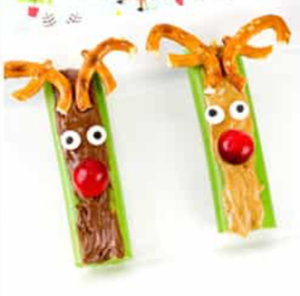February 28th, 2022
Parents really want to make sure that their children don't get cavities, but how do they help prevent the cavities?
- Have your child's first dental visit before the age of 1. This allows your child to have an established dental home to ensure they have the proper care.
- Take your child to the dentist regularly! We recommend taking your child to the dentist at least twice a year.
- Help your child brush 2x/day, 2 minutes each time.
- Give your child a balanced diet full of low-sugary foods.
We always want to do everything we can to prevent cavities and keep your child's smiles bright!
February 11th, 2022
A lot of parents often wonder how cavities start? A lot of factors can go into why a child may get cavities, but here's a simple overview of how a cavity is formed.
- All of the foods and beverages we eat and drink contain sugar. This sugar sticks to our teeth until we brush them.
- We all have bacteria living in our mouths that love sugar. The sugar becomes a food source for the bacteria that allows them to make acid. This acid causes our teeth to break down!
- Over time, the breakdown of the tooth continues and a hole forms. This is a cavity!
So how do we prevent cavities?
- Brushing at least 2x/day for a minimum of 2 minutes each time. Also don't forget to floss!
- Limiting the amount of sugary foods and beverages that we eat and drink.
- Visiting the dentist at least 2x/year for regular check ups!
Let's all work together to help our teeth by cavity-free!
January 11th, 2022
Does your child eat gummy vitamins? Although this may be a popular option to get children to take their vitamins, gummy vitamins aren't the best option for your child's teeth! Even though the vitamins have all the nutrients to keep your child's body healthy, it is unfortunately really sticky. So what does that mean for our teeth?
When something is really sticky, it sticks super well to your child's teeth, especially the teeth in the back. These teeth are already really hard to brush, so the gummies will stay stuck to your child's teeth for a long time. This increases the chance of getting cavities! The bacteria in your child's mouth feed on any food subtances left on the teeth. They then produce acid that starts to break down your child's teeth resulting in a hole - this is a cavity!
So if gummy vitamins are not a great option for teeth, what are some alternative options? We highly recommend chewable tablet vitamins for your children if they are unable to swallow pills. Chewable tablets do not stay stuck to teeth like gummy vitamins. Another way for your child to get their vitamins is to eat healthy well-balanced meals packed full of nutritious fruits and vegetables!
Let's work together to keep your child's smiles healthy!
December 24th, 2021
Happy Holidays!! In this season of sweet treats, we wanted to give you some teeth-friendly treat options for the whole family! These super easy recipes can be made into a fun activity to do with your little one.

Reindeer Celery
- Cut celery sticks into child-size pieces
- Fill with your child's favorite nut butter (or alternative butter if your child is allergic to nuts)
- Place pretzels for the antlers
- Add googly eyes and red M&M to finish the face!

Grinch Fruit Kabobs
- Skewer one green grape, then one slice of banana, then one whole strawberry, then one tiny marshmellow onto a wooden skewer!
All of these recipes are super simple to do! You can customize the ingredients to your child's taste as well.
We wish you and your family the happiest of holidays!



